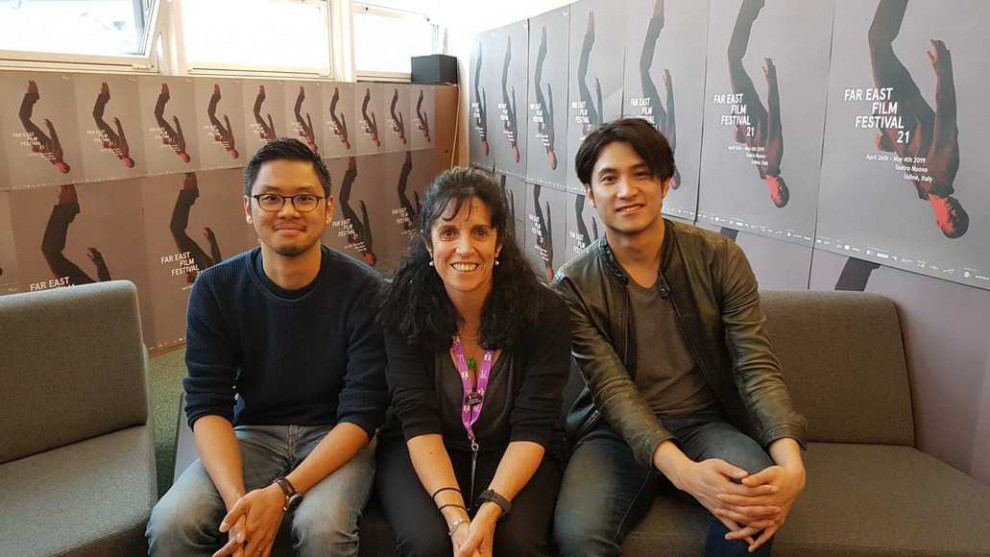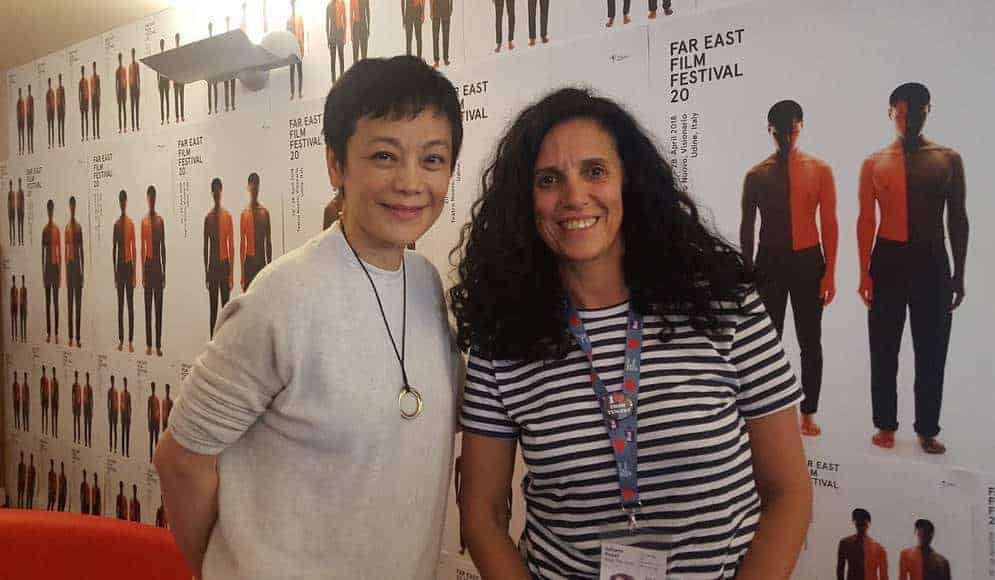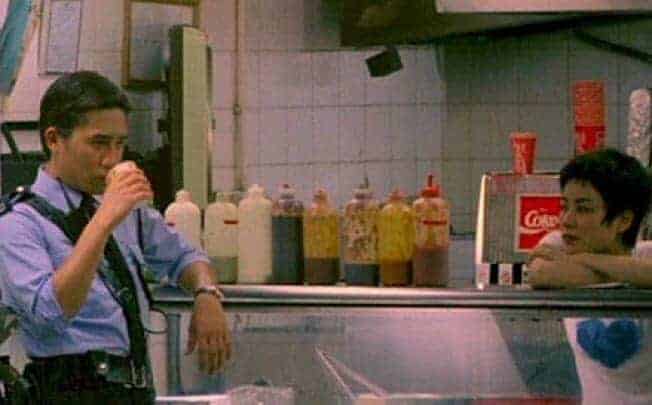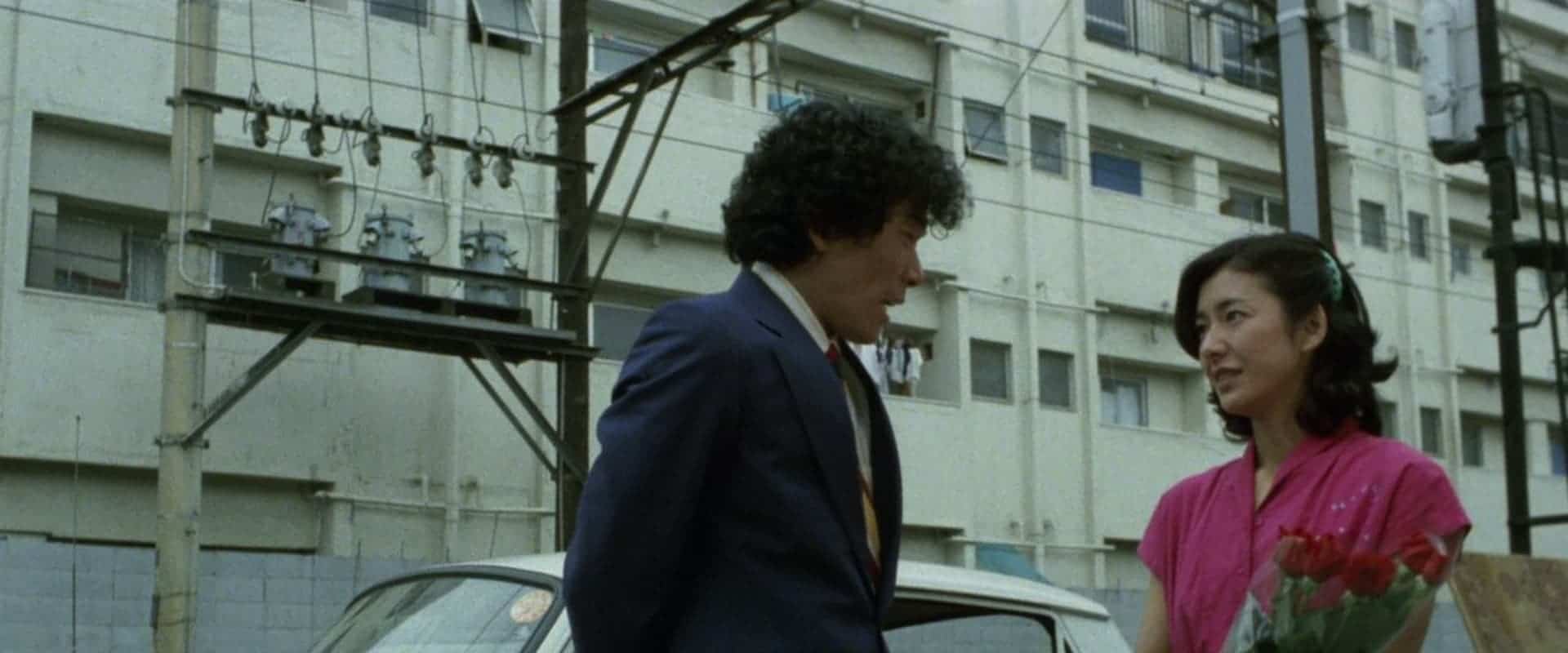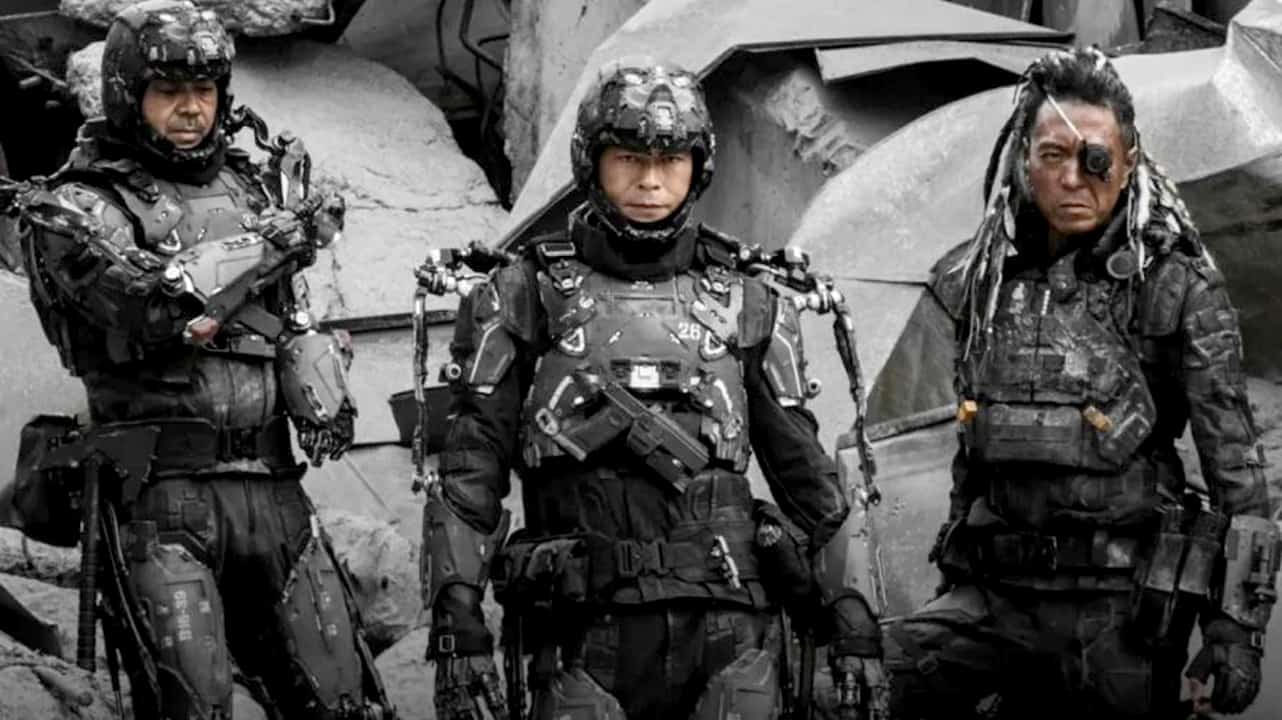Born in Itoshima, Fukuoka Prefecture in 1987, Seiji Tanaka dropped out of Nihon University College of Art to go to California and joined for two years a community college with the aim of becoming a scriptwriter. Once back to Japan, he began writing scripts for stage plays and making short films. His day job was video production for an IT company. In 2016 his friend, Yoji Minagawa, approached Tanaka with he idea of making a film together, with Minagawa serving as producer. Together with another actor friend, Yoshitomo Isozaki , they formed the production company One Goose. “Melancholic” is Tanaka's first feature and had its world premiere at the 2018 Tokyo International Film Festival in the Japanese Cinema Splash section where Tanaka won the section's Best Director prize.
Yoji Minagawa was born in 1987 too. He is a stage actor who befriended Seiji Tanaka while working with him. It was him who had the idea to contact Tanaka with the idea of making a film together. Other than interpreting Melancholic's main character Kazuhiko, Minagawa also produced the film.
On the occasion of their film “Melancholic” screening at the Udine Far East Film Festival 21, we speak with them about the best way to use public baths, the charm of a looser and resisting to changes.

“Melancholic” took only 10 days to be completed. Can you tell us how you made that possible?
Tanaka: Since Mr. Minagawa was also the producer and I was working during the week days, what happened was that we decided we would do the filming during the Saturdays and Sundays. That means two days for 5 weeks, so, yes, exactly 10 full days. Of course, at first I thought filming in that way would be difficult but then the good point was that he was the lead actor and at the same time he was also the producer. It was important for him to have time not just as an actor but also as a producer and since he would have 5 free days a week to use as a producer, when we finished we realise that was a very good thing and worked really well.
I would like to ask you about your collaboration. How did it happen, how did your destinies cross?
Minagawa: After I completed my University studies I started my work as an actor and what happened is that I started my career in theatre, as a stage actor and at the time there was a stage director who was a common acquaintance (mine and Mr. Tanaka's) so we started both under his theatrical direction and it was this person who made us meet. After that, 7 or 8 years went by, and I still had a very strong memory of Mr. Tanaka, respecting both his view and knowledge about theatre and about everything regarding theatrical issues. I respected him so much that the very moment I decided I wanted to make a movie, I just went straight to him with the proposition of making a movie together.

The main location of the movie is a public bath, that is used by the Yakuza to kill and get rid of bodies. Did you get this idea from some real episode you read on the news, is it something the Yakuza does or is it pure fantasy?
T: Oh, no, it is 100% fiction, as far as I know there has never been a similar case. In the first draft of the script, I hadn't chosen a public bath but another place as main location. Then, while I was writing, I started to think what an ideal place to kill and eliminate all the traces would be, and it came to my mind that a public bath would be perfect for the whole operation, from killing to the final clean-up. I thought it was a very believable logic and therefore, I worked on that direction.
M: there aren't any other films where a public bath is used for executions. It is an original idea thinking that the place could have this double purpose, normal during the day and unexpected during the night.
Kazuhiko is an enduring loser but also quite charming at the same time. I was wondering why you wanted to portray him that way and how was for Mr. Minagwa to play that character.
T: In my case I have to say that a film director from which I took great inspiration in my life is Woody Allen, so the moment I decided to write the character of Kazuhiko, in my mind I had the image of the face of Woody Allen and the face of Mr. Minagawa overlapping, so I think you can understand now why I decided for him to have glasses and other small details of his personality that I think you can understand. So he is charming but also a sort of a loser, definitely not a winner. So, in his case, that was my inspiration.
M: When I read the script, Kazuhiko was a character that develops and unfolds over time but I wasn't aware of him being charming, I just wanted to portray a human being. Then together with the girl playing Yuri, called Mebuki Yoshiba, the three of us had a reading of the script, rehearsing the break-up scene. And there is a scene were he is trying to kiss once more the girl after they broke up, but she rejects him and that is very loser-ish from a male point of view. And there it was where we decided to increase the charming element to create the human being that is Kazuhiko.
T: Moreover, you have a loser but you have such a handsome guy that the overall addition is that you have “charming” (he laughs).

Mr, Minagawa, what do you add of your personality to the character of Kazuhiko that is already so well depicted in the script?
M: In reality, I tried to avoid adding something mine to Kazuhiko's personality. I practiced and prepared the character within my daily activities. Being an uncommon character, I started to think how his way of looking at things could be, try to imagine a way to move his hands and his body. I started from his external peculiarities to then getting closer to his soul.
Can you talk about the odd friendship between Kazuhiko and Matsumoto?
T: With them, I wanted to create the typical dynamic of the buddy movies, where two characters with two opposite personalities became friends and also I wanted to push to the limit the main character – which is another well established script-writing technique – and to be able to do that, I created Matsumoto who has the purpose of cornering even more Kazuhiko.
I noticed that the shooting scenes have no proper gory effects with lots of gushing blood, but instead, the one time we see lots of blood on a person, that is actually ketchup, why? Is it just for comedic purpose?
T: The fact of avoiding the grotesque and gore was, at the time, mainly a budget and time limitation and I wasn't very happy about it. But then, when we showed the film to the public we often had very positive feedback about the lack of gore, so now I am actually quite “accidentally” happy about it.
One theme of “Melancholic” seems to be the difficulties of the older generations to move forward, to accept changes.
T: Well, yes, in the film that is a storytelling element. I actually believe that resistance to changes, more than a generational characteristic, is often an individual problem. I am actually very resistant to changes and I hope that making the characters like me dying in my film will be an encouragement for me too!
In contemporary Japanese cinema, young people are often portrayed as lost, without future, work, love. But at the end of your film, the young generation looks very grounded and they bond over friendship and family. Is this something that comes from your personal experience? Can you elaborate on this?
T: I have to say that this is not by any means an ending that is based on my personal experience but it is all about the theme I wanted to follow in the film, that is that whatever happens in your life is supposed to be a way for you to love your own life. So, if you think about Kazuhiko, he is jobless at the beginning of the film and is jobless at the end of the film, so that doesn't change. What changes is his way to perceive life, and because he now has a new perception of life, you feel that he has now developed as a human being. So, it's about being able to enjoy and to love your life; whatever happens there is always the possibility to find love.



